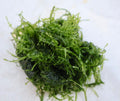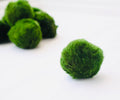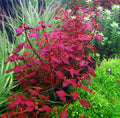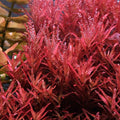How to Use a Water Dechlorinator in Aquariums (Part 1)
Many fishkeepers are unsure of how aquarium water conditioners function, the hazards of overdosing, and the variations among the many types of dechlorinators. Let's discuss the facts regarding water conditioners and provide answers to your commonly asked questions based on the available research and our years of experience.
Is water conditioner Really Necessary for Fish?
Maybe. Your drinking water is probably disinfected with chemicals like chlorine or chloramine to get rid of bacteria, viruses, and other microbes that might spread illness if it comes from a municipal water supply or other public water system. These substances must be eliminated from the water using a dechlorinator since they are poisonous to aquatic life and helpful microbes. Your fish may start gasping or breathing excessively if the gills on their lungs get scorched if water conditioner isn't added to the tap water.
You might not need a water conditioner for your aquariums if the water you drink comes from a well or another source that hasn't been treated with chemicals.We suggest having your well water tested to see if there are any heavy metals in it. If there are, some dechlorinators may be able to help get rid of them.
Does allowing the water to stand eliminate chlorine?
Yes, chlorine does gradually evaporate from water and is rather unstable. However, since chloramine is a more stable disinfectant created by mixing ammonia with chlorine, many water treatment facilities have started utilizing it in place of chlorine. Chloramine must be neutralized with a dechlorinator since it cannot be readily removed from water by evaporation. If you know for sure that the chlorine in your tap water is chlorine rather than chloramine, you may leave the water out for one to five days to let the chlorine completely evaporate.
Boil the water for 15–20 minutes or aerate it with an air stone for 12–24 hours to hasten the evaporation process. Measure the water using multi-test strips to make sure there is no chlorine remaining. To add air to the water, stir the surface, and hasten gas exchange, air stones are attached to an air pump and airline tubing.
Why Do You Need a Dechlorinator?
The primary function of water conditioners is to degrade chlorine and chloramine and provide fish-safe water. Sodium thiosulfate, which is included in almost all dechlorinators, interacts with chlorine and chloramine to produce harmless byproducts. Sodium thiosulfate is a white powder or rock salt that is often dissolved in water to make liquid dechlorinators. Aloe vera, which helps heal the fish's slime coats, pH buffers, and other ingredients may be found in certain water conditioners.
Does a dechlorinator get rid of urea?
As indicated on their boxes, some of them do. The primary cause of this is because dechlorinators, which are used to treat chloramine, only respond to the chloramine's chlorine component and not its ammonia component. Some dechlorinators include additional chemicals that temporarily lock up the ammonia in an inert state (i.e., ammonium) for up to 24 hours since the leftover ammonia ions in the water are hazardous to fish. Ammonium may be absorbed and further broken down by helpful microorganisms in your aquarium and filter during this period.
Even though all dechlorinators get rid of chlorine and chloramine, some also get rid of ammonia, nitrite, and heavy metals.Does a dechlorinator get rid of bleach? Yes, the dechlorinator will react with the chlorine in the bleach to more quickly neutralize it. The quantity and concentration of bleach used determine the amount of dechlorinator required.

















Fantastic guide! Using a dechlorinator is essential for keeping aquarium water safe and your fish thriving. It’s a simple step that makes a huge difference. Check out this reliable option: https://purelyponds.com/product/liquid-dechlorinator-16-oz/
Hello, just got a question, we live in tge country, and are on rain water tanks, poly type tanks, that also collect rain water drom our roof that runs along a short gutter and into the tanks, which have a filtre on them, but during dry spells of rain, we get in a big water truck, to refill, is the water in the water trucks free of chlorine, or does it already have chlorine in it, i know its slightly acid, but im doing research for my aquarium, i can purchase a test kit to test. I think the water is of softness not hard water. Thanks
Regards Michele Mcintyre